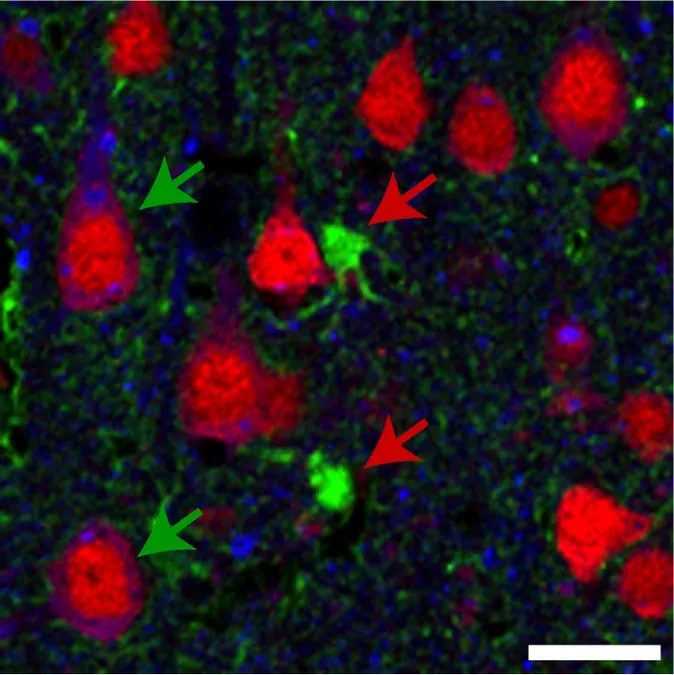
Breakthrough Weight-Loss Medications Show Promise for Stroke Survivors: A Game-Changer for Heart Health?
2024-11-11
Author: Nur
In a groundbreaking study published on Nov. 11, 2024, researchers revealed that weight-loss medications, specifically Ozempic, could significantly lower the risk of heart attacks and death among stroke survivors. This research is a beacon of hope for the nearly 795,000 Americans who experience a stroke each year.
The study focused on GLP-1 (glucagon-like peptide-1) medications, like Ozempic, and SGLT2 (sodium-glucose co-transporter-2) drugs, like Jardiance and Farxiga. Notably, it found that patients who took these medications after experiencing a stroke had a staggering 74% lower risk of death and an 84% lower risk of heart attack over an average follow-up of three years. Moreover, SGLT2 medications were linked to a 67% reduced risk of suffering another stroke.
Dr. Ali Sheffeh, the lead researcher and an internal medicine physician at the Mayo Clinic, emphasized the urgency of managing risks in stroke survivors. “Unfortunately, one in four stroke survivors will suffer a subsequent stroke,” he pointed out, highlighting that many stroke risk factors overlap with those leading to heart disease.
The researchers analyzed medical records from over 7,000 adults treated for blood clot-related strokes in Minnesota and Wisconsin between 2000 and 2022. Their findings reveal that while the mortality rate among stroke survivors not using these medications was a staggering 54%, those on GLP-1 or SGLT2 drugs experienced a death rate of under 12%. Furthermore, heart attack rates were impressively low at 1.5% compared to 6% among patients who did not use the medications.
These medications work through different mechanisms: GLP-1 drugs help regulate insulin and blood sugar levels while promoting weight loss, appetite suppression, and slower digestion. SGLT2 drugs, on the other hand, facilitate the excretion of excess sugar via urine, promoting lower blood sugar levels. Not only do GLP-1 drugs support weight loss, but they also contribute to lower blood pressure and reduced arterial plaque formation—both critical factors tied to heart attacks and strokes.
Dr. Cheryl Bushnell, a stroke expert with the American Heart Association, echoed these findings, asserting that the therapeutic effects of GLP-1 and SGLT2 medications on cardiovascular health have been well-documented. "For years, clinical trials have underscored these medications’ power to mitigate cardiovascular disease risk, including stroke," she explained.
Moreover, the study hints at another important mechanism at play: GLP-1 receptor agonists may decrease blood platelet aggregation, which could further diminish the risk of clot formation—a key contributor to strokes.
While the findings are promising, experts like Dr. Bushnell insist on the need for clinical trials to solidify these medications' role in changing practices for preventing recurrent strokes. "These medications have the potential to transform how we approach stroke prevention, but we require more robust data to verify their efficacy," she stated.
The study's findings were presented at the recent American Heart Association annual meeting in Chicago and are considered preliminary until they undergo peer review. This research marks a significant step in understanding how targeted medications might not only save lives but also enhance the quality of life for those at risk after experiencing a stroke.
For those seeking more information on SGLT2 drugs and their implications, resources are available from reputable medical institutions like Johns Hopkins Medicine. In light of these findings, one can only hope for the future where such groundbreaking treatments become standard practice for stroke survivors.


 Brasil (PT)
Brasil (PT)
 Canada (EN)
Canada (EN)
 Chile (ES)
Chile (ES)
 España (ES)
España (ES)
 France (FR)
France (FR)
 Hong Kong (EN)
Hong Kong (EN)
 Italia (IT)
Italia (IT)
 日本 (JA)
日本 (JA)
 Magyarország (HU)
Magyarország (HU)
 Norge (NO)
Norge (NO)
 Polska (PL)
Polska (PL)
 Schweiz (DE)
Schweiz (DE)
 Singapore (EN)
Singapore (EN)
 Sverige (SV)
Sverige (SV)
 Suomi (FI)
Suomi (FI)
 Türkiye (TR)
Türkiye (TR)